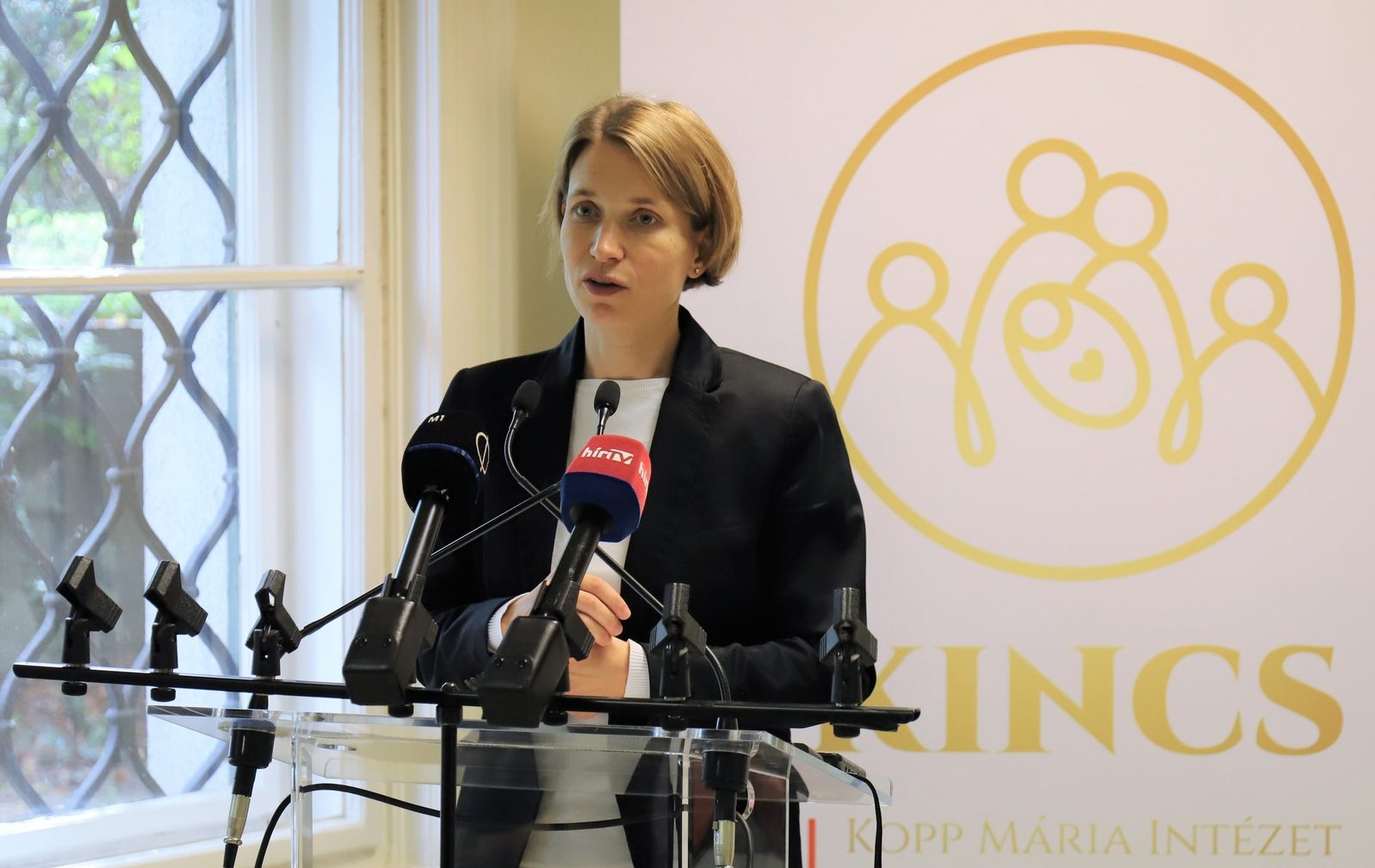
Hungarians and other Western Europeans would prefer to solve demographic problems by having children.Continue reading

The elderly person in a family is not a burden, but a presence of experience and support, which is very much needed in the 21st century, said the State Secretary for Families of the Ministry of Culture and Innovation in Budapest.
Speaking at the Mária Kopp Institute for Demography and Families (KINCS) workshop on Older People in Families, State Secretary Ágnes Hornung pointed out the number of people over 65 in the world reached 700 million in 2019, with some estimates suggesting the number could reach 1.5 billion by 2050. She added: “If you translate this into the cold language of economics, you can see that the state will also have to address the issue of increased pension provision or additional health care expenditure.”

Ágnes Hornung Facebook
She said that the themes of the conference would revolve around the World Day of Older Persons, which takes place on the first day of October each year. Hornung said the date was symbolic, as we are already in autumn, but there is still time before the end of the year. By choosing the day, the United Nations wanted to draw attention to the fact that there are more and more elderly people in the world, she explained.
Speaking about the well-being of the elderly, she stressed that the government has taken a number of measures and initiatives to help them spend their everyday lives as fully as possible, in good health and active. As an example, she said that local authorities are being encouraged to go beyond their mandatory duties and to offer unique, imaginative and innovative ways of improving the quality of life of the elderly in their municipalities.
They also provide specific support to a number of NGOs and municipal programs to promote, among other things, physical and mental activity for older people, improve the daily lives of people living with dementia and their caregivers, raise awareness of the disease in society, strengthen intergenerational links, and improve services for older people and their relatives.
Hornung stated: “We want to learn from our ancestors, to receive from them the valuable knowledge that life has taught them, but at the same time their need for well-deserved rest is legitimate. It is the joint responsibility of the state and Hungarian families to ensure this, she added. Tünde Fűrész, President of KINCS, stressed that the elderly, grandparents, are the main actors in the family, its decisive and irreplaceable members. She recalled that in 2010, a strong alliance was formed between the elderly and the government, and that in the last decade there has been a change of attitude; today the elderly are not seen as a burden but a resource, who can be counted on in both family and social terms. As an example, she cited research carried out by KINCS, according to which grandparents are actively involved in raising children in 78% of families.
Via: MTI; Featured image: Pixabay